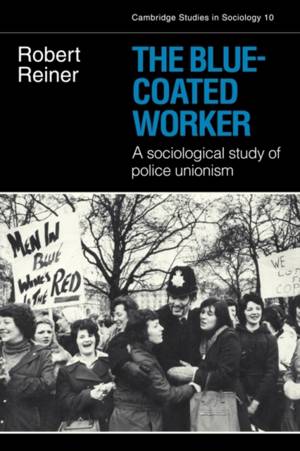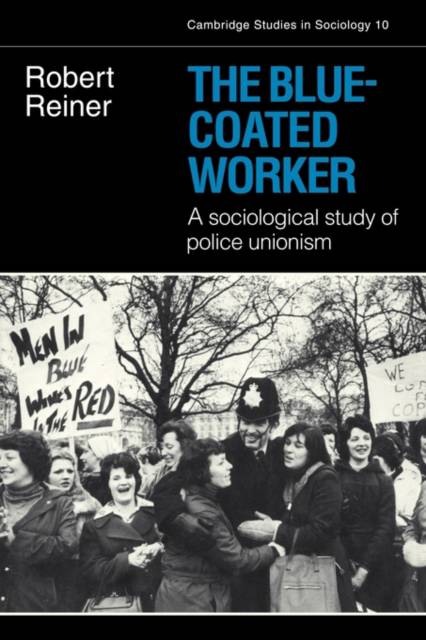
Je cadeautjes zeker op tijd in huis hebben voor de feestdagen? Kom langs in onze winkels en vind het perfecte geschenk!
- Afhalen na 1 uur in een winkel met voorraad
- Gratis thuislevering in België vanaf € 30
- Ruim aanbod met 7 miljoen producten
Je cadeautjes zeker op tijd in huis hebben voor de feestdagen? Kom langs in onze winkels en vind het perfecte geschenk!
- Afhalen na 1 uur in een winkel met voorraad
- Gratis thuislevering in België vanaf € 30
- Ruim aanbod met 7 miljoen producten
Zoeken
€ 64,95
+ 129 punten
Uitvoering
Omschrijving
This 1978 book addresses the way in which police unions had become increasingly militant and formed a significant political force, demanding better pay and conditions and a say in social and penal policy. In this study, Robert Reiner considers the development of British police unionization, and the views of the police themselves towards unionism. Dr Reiner is able to relate these two issues to one another particularly insightfully as a result of his interviews with a sample of policemen in a large city force, which illustrate the policeman's world-view. The central contention of the book is that the police occupy a contradictory position in class structure. Economically they are employees who form unions to advance their interests like other workers, but their political role of preserving the social order imposes special inhibitions on the character of their unionism, and can alienate them from other trade unionists.
Specificaties
Betrokkenen
- Auteur(s):
- Uitgeverij:
Inhoud
- Aantal bladzijden:
- 308
- Taal:
- Engels
- Reeks:
- Reeksnummer:
- nr. 10
Eigenschappen
- Productcode (EAN):
- 9780521294829
- Verschijningsdatum:
- 7/09/1978
- Uitvoering:
- Paperback
- Formaat:
- Trade paperback (VS)
- Afmetingen:
- 152 mm x 229 mm
- Gewicht:
- 453 g

Alleen bij Standaard Boekhandel
+ 129 punten op je klantenkaart van Standaard Boekhandel
Beoordelingen
We publiceren alleen reviews die voldoen aan de voorwaarden voor reviews. Bekijk onze voorwaarden voor reviews.









